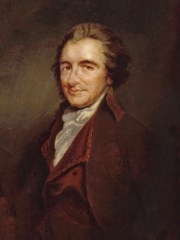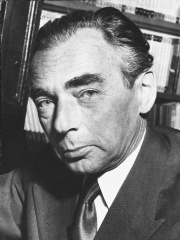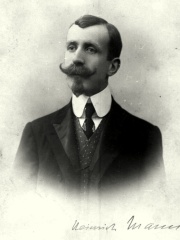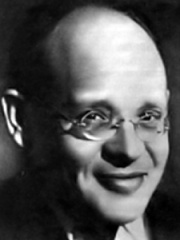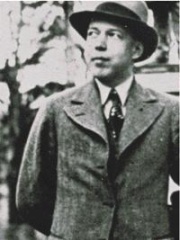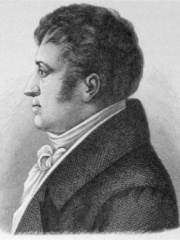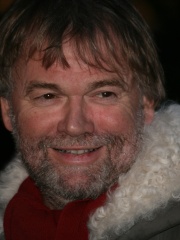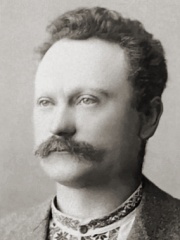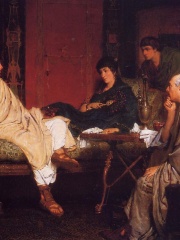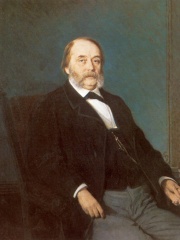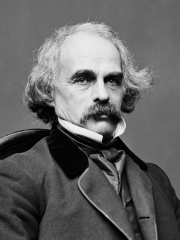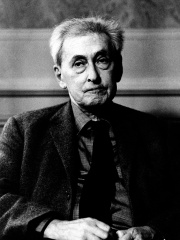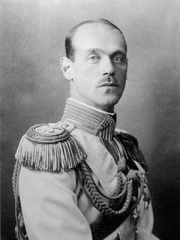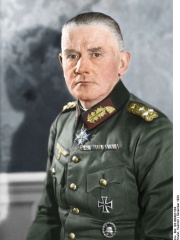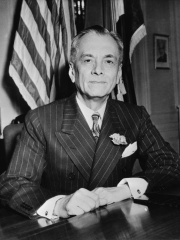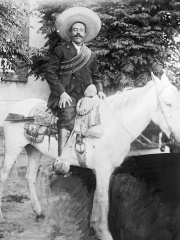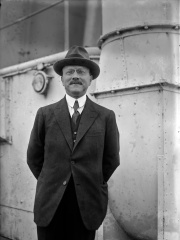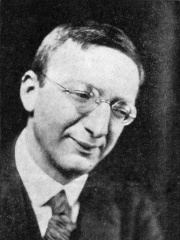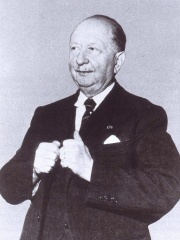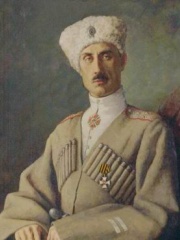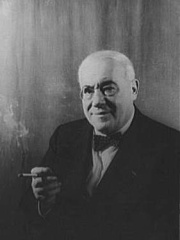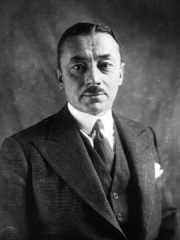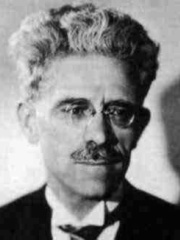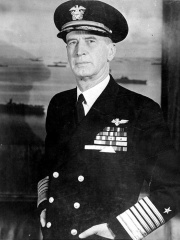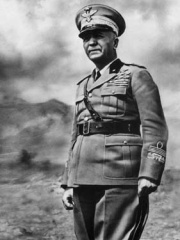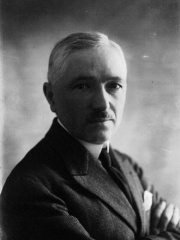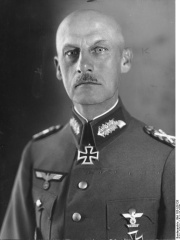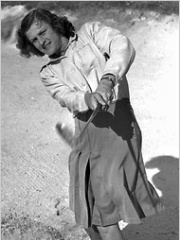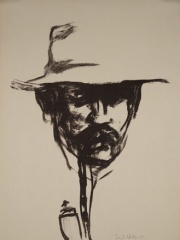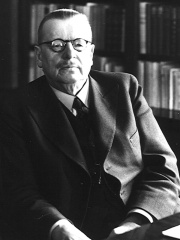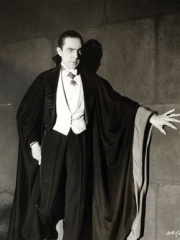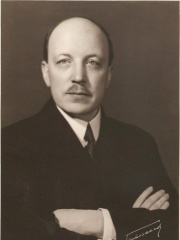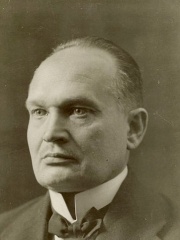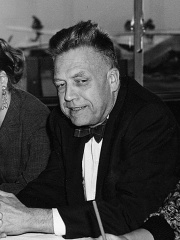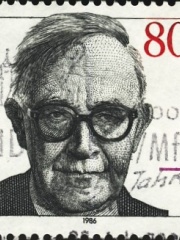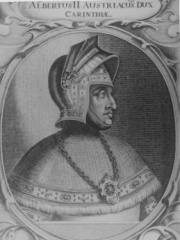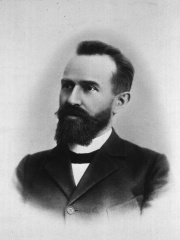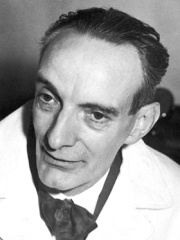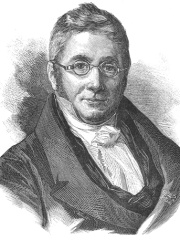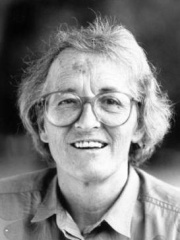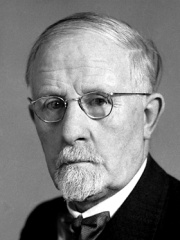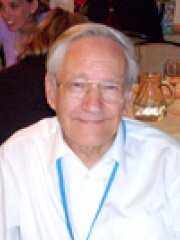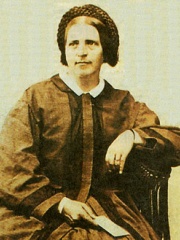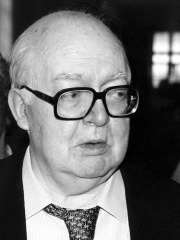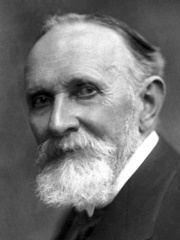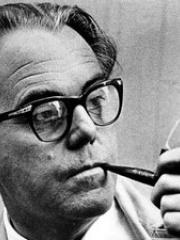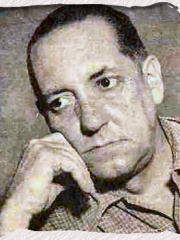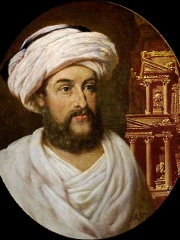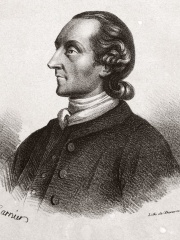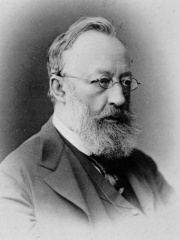WRITER
Robert Walser
1878 - 1956
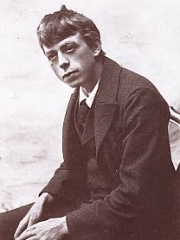
 Robert Walser
Robert Walser
Robert Walser (15 April 1878 – 25 December 1956) was a German language Swiss writer. He additionally worked as a copyist, an inventor's assistant, a butler, and in various other low-paying trades. Despite marginal early success in his literary career, the popularity of his work gradually diminished over the second and third decades of the 20th century, making it increasingly difficult for him to support himself through writing. He eventually had a nervous breakdown and spent the remainder of his life in sanatoriums. Read more on Wikipedia
His biography is available in 44 different languages on Wikipedia. Robert Walser is the 514th most popular writer (up from 532nd in 2024), the 50th most popular biography from Switzerland and the 6th most popular Swiss Writer.
Robert Walser is most famous for his work in the field of German Expressionism. He wrote in a variety of forms, including novels, short stories, and poetry.
Memorability Metrics
Page views of Robert Walser by language
Among WRITERS
Among writers, Robert Walser ranks 514 out of 7,302. Before him are Thomas Paine, Erich Kästner, Heinrich Mann, Isaac Babel, Mika Waltari, and August Wilhelm Schlegel. After him are Jostein Gaarder, Ivan Franko, Tibullus, Ivan Goncharov, Nathaniel Hawthorne, and Ilya Ehrenburg.
Most Popular Writers in Wikipedia
Go to all RankingsThomas Paine
1737 - 1809
HPI: 72.64
Rank: 508
Erich Kästner
1899 - 1974
HPI: 72.64
Rank: 509
Heinrich Mann
1871 - 1950
HPI: 72.62
Rank: 510
Isaac Babel
1894 - 1940
HPI: 72.61
Rank: 511
Mika Waltari
1908 - 1979
HPI: 72.59
Rank: 512
August Wilhelm Schlegel
1767 - 1845
HPI: 72.59
Rank: 513
Robert Walser
1878 - 1956
HPI: 72.59
Rank: 514
Jostein Gaarder
1952 - Present
HPI: 72.58
Rank: 515
Ivan Franko
1856 - 1916
HPI: 72.57
Rank: 516
Tibullus
50 BC - 19 BC
HPI: 72.53
Rank: 517
Ivan Goncharov
1812 - 1891
HPI: 72.53
Rank: 518
Nathaniel Hawthorne
1804 - 1864
HPI: 72.52
Rank: 519
Ilya Ehrenburg
1891 - 1967
HPI: 72.51
Rank: 520
Contemporaries
Among people born in 1878, Robert Walser ranks 13. Before him are Grand Duke Michael Alexandrovich of Russia, Werner von Blomberg, Manuel L. Quezon, Pancho Villa, André Citroën, and Alfred Döblin. After him are Lucien Febvre, Pyotr Wrangel, Ferenc Molnár, Paul Reynaud, Maurice René Fréchet, and Ernest King. Among people deceased in 1956, Robert Walser ranks 14. Before him are Pietro Badoglio, Jules Rimet, Wilhelm Ritter von Leeb, Babe Didrikson Zaharias, Emil Nolde, and Juho Kusti Paasikivi. After him are Bela Lugosi, Lucien Febvre, Risto Ryti, Konstantin Päts, A. A. Milne, and Alfred Kinsey.
Others Born in 1878
Go to all RankingsGrand Duke Michael Alexandrovich of Russia
NOBLEMAN
1878 - 1918
HPI: 74.17
Rank: 7
Werner von Blomberg
MILITARY PERSONNEL
1878 - 1946
HPI: 74.01
Rank: 8
Manuel L. Quezon
POLITICIAN
1878 - 1944
HPI: 73.70
Rank: 9
Pancho Villa
MILITARY PERSONNEL
1878 - 1923
HPI: 73.45
Rank: 10
André Citroën
ENGINEER
1878 - 1935
HPI: 73.43
Rank: 11
Alfred Döblin
WRITER
1878 - 1957
HPI: 72.90
Rank: 12
Robert Walser
WRITER
1878 - 1956
HPI: 72.59
Rank: 13
Lucien Febvre
HISTORIAN
1878 - 1956
HPI: 71.88
Rank: 14
Pyotr Wrangel
NOBLEMAN
1878 - 1928
HPI: 71.33
Rank: 15
Ferenc Molnár
WRITER
1878 - 1952
HPI: 70.78
Rank: 16
Paul Reynaud
POLITICIAN
1878 - 1966
HPI: 70.36
Rank: 17
Maurice René Fréchet
MATHEMATICIAN
1878 - 1973
HPI: 70.25
Rank: 18
Ernest King
MILITARY PERSONNEL
1878 - 1956
HPI: 70.00
Rank: 19
Others Deceased in 1956
Go to all RankingsPietro Badoglio
POLITICIAN
1871 - 1956
HPI: 75.01
Rank: 8
Jules Rimet
BUSINESSPERSON
1873 - 1956
HPI: 74.98
Rank: 9
Wilhelm Ritter von Leeb
MILITARY PERSONNEL
1876 - 1956
HPI: 74.89
Rank: 10
Babe Didrikson Zaharias
GOLFER
1911 - 1956
HPI: 73.63
Rank: 11
Emil Nolde
PAINTER
1867 - 1956
HPI: 73.18
Rank: 12
Juho Kusti Paasikivi
POLITICIAN
1870 - 1956
HPI: 73.17
Rank: 13
Robert Walser
WRITER
1878 - 1956
HPI: 72.59
Rank: 14
Bela Lugosi
ACTOR
1882 - 1956
HPI: 72.12
Rank: 15
Lucien Febvre
HISTORIAN
1878 - 1956
HPI: 71.88
Rank: 16
Risto Ryti
POLITICIAN
1889 - 1956
HPI: 71.68
Rank: 17
Konstantin Päts
POLITICIAN
1874 - 1956
HPI: 71.63
Rank: 18
A. A. Milne
WRITER
1882 - 1956
HPI: 70.88
Rank: 19
Alfred Kinsey
PSYCHOLOGIST
1894 - 1956
HPI: 70.58
Rank: 20
In Switzerland
Among people born in Switzerland, Robert Walser ranks 50 out of 1,015. Before him are Karl Barth (1886), Albert II, Duke of Austria (1298), Adelaide of Italy (931), Eugen Bleuler (1857), Lys Assia (1924), and Daniel Bovet (1907). After him are Augustin Pyramus de Candolle (1778), Elisabeth Kübler-Ross (1926), Ursula Andress (1936), Walter Rudolf Hess (1881), Angelica Kauffman (1741), and Richard R. Ernst (1933).
Others born in Switzerland
Go to all RankingsKarl Barth
WRITER
1886 - 1968
HPI: 73.13
Rank: 44
Albert II, Duke of Austria
POLITICIAN
1298 - 1358
HPI: 72.95
Rank: 45
Adelaide of Italy
COMPANION
931 - 999
HPI: 72.89
Rank: 46
Eugen Bleuler
PHYSICIAN
1857 - 1939
HPI: 72.70
Rank: 47
Lys Assia
SINGER
1924 - 2018
HPI: 72.67
Rank: 48
Daniel Bovet
BIOLOGIST
1907 - 1992
HPI: 72.63
Rank: 49
Robert Walser
WRITER
1878 - 1956
HPI: 72.59
Rank: 50
Augustin Pyramus de Candolle
BIOLOGIST
1778 - 1841
HPI: 72.55
Rank: 51
Elisabeth Kübler-Ross
PHYSICIAN
1926 - 2004
HPI: 72.54
Rank: 52
Ursula Andress
ACTOR
1936 - Present
HPI: 72.46
Rank: 53
Walter Rudolf Hess
PHYSICIAN
1881 - 1973
HPI: 72.36
Rank: 54
Angelica Kauffman
PAINTER
1741 - 1807
HPI: 72.29
Rank: 55
Richard R. Ernst
CHEMIST
1933 - 2021
HPI: 72.24
Rank: 56
Among WRITERS In Switzerland
Among writers born in Switzerland, Robert Walser ranks 6. Before him are Johanna Spyri (1827), Friedrich Dürrenmatt (1921), Carl Spitteler (1845), Erich von Däniken (1935), and Karl Barth (1886). After him are Max Frisch (1911), Alejo Carpentier (1904), Johann Ludwig Burckhardt (1784), Johann Kaspar Lavater (1741), Gottfried Keller (1819), and Annemarie Schwarzenbach (1908).
Johanna Spyri
1827 - 1901
HPI: 76.73
Rank: 1
Friedrich Dürrenmatt
1921 - 1990
HPI: 75.09
Rank: 2
Carl Spitteler
1845 - 1924
HPI: 73.32
Rank: 3
Erich von Däniken
1935 - Present
HPI: 73.20
Rank: 4
Karl Barth
1886 - 1968
HPI: 73.13
Rank: 5
Robert Walser
1878 - 1956
HPI: 72.59
Rank: 6
Max Frisch
1911 - 1991
HPI: 70.83
Rank: 7
Alejo Carpentier
1904 - 1980
HPI: 70.51
Rank: 8
Johann Ludwig Burckhardt
1784 - 1817
HPI: 68.82
Rank: 9
Johann Kaspar Lavater
1741 - 1801
HPI: 68.56
Rank: 10
Gottfried Keller
1819 - 1890
HPI: 67.18
Rank: 11
Annemarie Schwarzenbach
1908 - 1942
HPI: 67.02
Rank: 12
